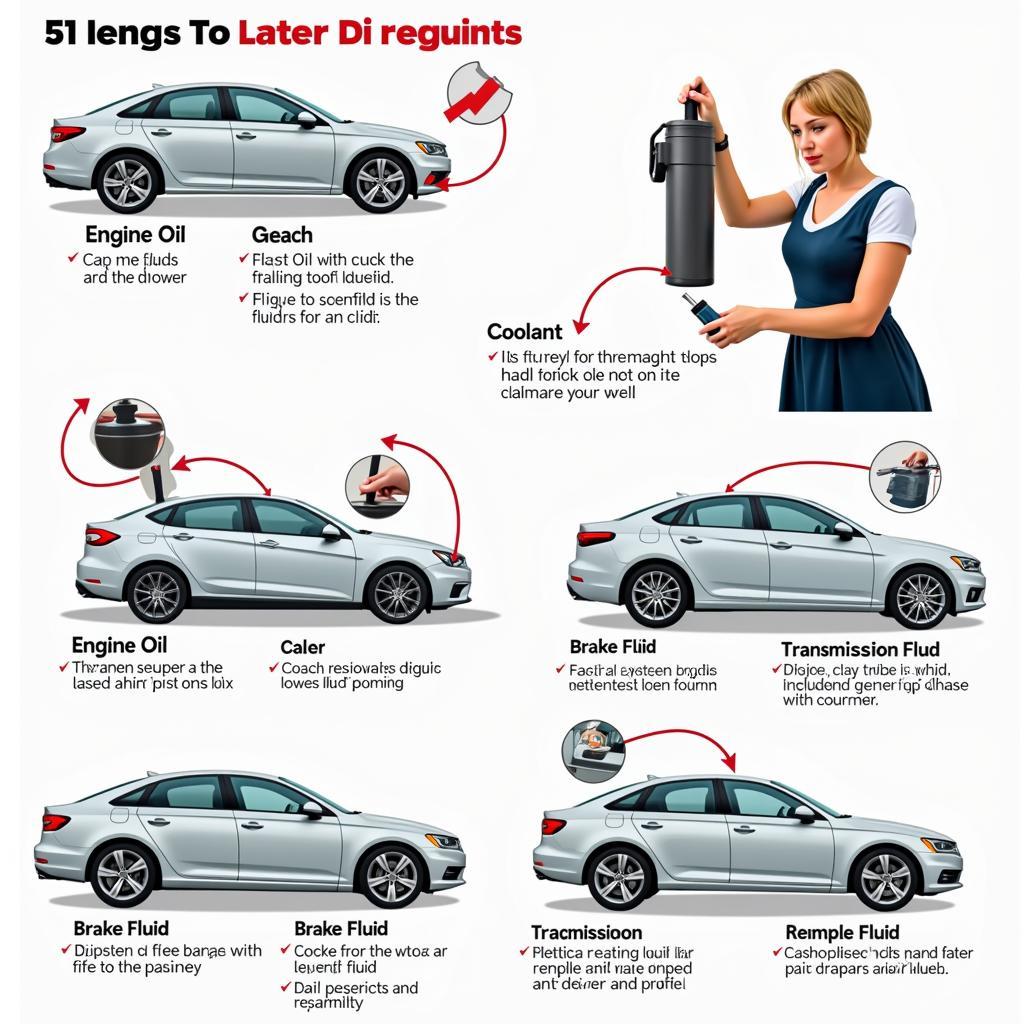Car maintenance is an inevitable part of car ownership, and understanding the associated costs is essential for responsible budgeting and decision-making. Whether you’re a car owner looking to manage your expenses or a mechanic aiming to provide transparent pricing to your clients, this comprehensive guide will equip you with the knowledge to navigate the world of car maintenance costs effectively.
The Anatomy of Car Maintenance Costs
Car maintenance costs are influenced by various factors, including the car’s make and model, age, mileage, driving habits, and geographical location. Costs can fluctuate significantly depending on the specific maintenance task, the parts required, and the labor involved.
Routine Maintenance Costs
Routine maintenance includes tasks performed regularly to ensure optimal car performance and extend its lifespan. These tasks typically involve:
- Oil changes: Regular oil changes are crucial for lubricating the engine and preventing wear and tear. Costs can vary depending on the type of oil, the oil filter, and labor charges.
- Tire rotation and balancing: Rotating tires helps ensure even wear and prolong their lifespan. Balancing helps minimize vibrations and enhance ride quality.
- Fluid checks and refills: Regularly checking and refilling fluids like coolant, brake fluid, and power steering fluid is essential for proper car function.
- Air filter replacement: A dirty air filter restricts airflow to the engine, affecting performance and fuel efficiency.
- Spark plug replacement: Worn-out spark plugs can impact fuel efficiency and engine performance.
Major Maintenance Costs
Major maintenance tasks are less frequent than routine maintenance but are typically more expensive due to the complexity of the work and the parts involved. These tasks include:
- Brake repair or replacement: Brake pads and rotors wear down over time, requiring replacement. Brake fluid needs to be replaced periodically as well.
- Timing belt replacement: The timing belt synchronizes the engine’s valves and pistons. Replacing it before it breaks can prevent significant engine damage.
- Battery replacement: Car batteries have a limited lifespan. Replacing a dead battery is essential to keep your car running.
- Suspension and steering component repair: Worn-out suspension and steering components affect handling, ride quality, and overall safety.
- Engine repair or replacement: Major engine problems can be costly, requiring extensive repairs or even engine replacement.
Factors Influencing Car Maintenance Costs
As mentioned earlier, various factors influence car maintenance costs. Let’s delve into these factors in more detail:
Car Make and Model
Different car makes and models have varying maintenance schedules and part costs. Luxury cars often require more expensive parts and labor, while compact cars may be more affordable to maintain.
Age and Mileage
Older cars generally require more frequent maintenance than newer vehicles due to wear and tear. Similarly, cars with higher mileage tend to incur higher maintenance costs as components age and require replacement.
Driving Habits
Aggressive driving, frequent short trips, and driving in extreme weather conditions can accelerate wear and tear on your car, leading to more frequent and costly maintenance.
Geographical Location
The cost of labor and parts can vary significantly depending on the region you live in. Urban areas may have higher labor rates compared to rural areas.
DIY vs. Professional Service
Performing some maintenance tasks yourself can save you money. However, complex tasks are best left to professional mechanics who have the expertise and equipment to ensure safe and effective repairs.
Expert Insight from John Smith, Master Mechanic
“Car maintenance costs can be a significant expense for car owners,” says John Smith, a master mechanic with over 20 years of experience. “Regular maintenance is crucial for preventing major issues and extending the lifespan of your vehicle. It’s always wise to consult a trusted mechanic for advice on preventative maintenance and potential costs involved.”
Managing Car Maintenance Costs
Managing car maintenance costs effectively requires a proactive approach. Here are some practical tips:
- Stick to the recommended maintenance schedule: Following the manufacturer’s recommended maintenance schedule helps prevent costly repairs down the line.
- Monitor your car’s condition: Regularly inspect your car for any signs of wear and tear. Early detection of issues can help prevent more significant problems.
- Compare prices: Shop around for the best deals on parts and labor. Online resources and local auto parts stores can offer competitive prices.
- Consider DIY maintenance: Performing simple tasks like oil changes or air filter replacements can save you money.
- Set aside a maintenance budget: Budgeting for car maintenance helps you plan for unexpected repairs and avoid financial stress.
Frequently Asked Questions
Q: How often should I get an oil change?
A: Oil change intervals vary depending on the type of oil, driving conditions, and vehicle recommendations. Typically, oil changes are recommended every 3,000 to 5,000 miles.
Q: What are some signs my car needs maintenance?
A: Some warning signs include strange noises, unusual smells, fluid leaks, decreased performance, and warning lights on your dashboard.
Q: How can I save money on car maintenance?
A: Consider buying used parts, performing simple tasks yourself, and shopping around for competitive prices.
Q: Are there any ways to prevent major car repairs?
A: Following the recommended maintenance schedule, driving cautiously, and monitoring your car’s condition can help prevent costly repairs.
Q: Is it better to buy a new car or maintain an older one?
A: The decision depends on your financial situation, driving needs, and personal preferences. Consider factors like reliability, maintenance costs, and resale value.
Conclusion
Car maintenance costs are an integral part of car ownership. Understanding the factors that influence these costs and employing practical strategies for management can help you maintain your vehicle responsibly and within your budget. Remember, proactive maintenance is key to preventing costly repairs and ensuring the longevity of your car.
For any further assistance or questions about car maintenance, please reach out to AutoTipPro at +1 (641) 206-8880 or visit our office at 500 N St Mary’s St, San Antonio, TX 78205, United States.





Leave a Reply